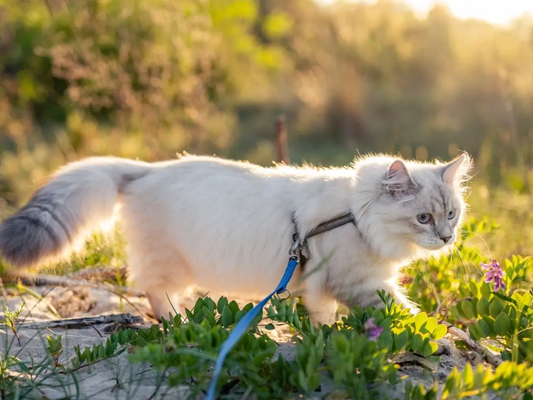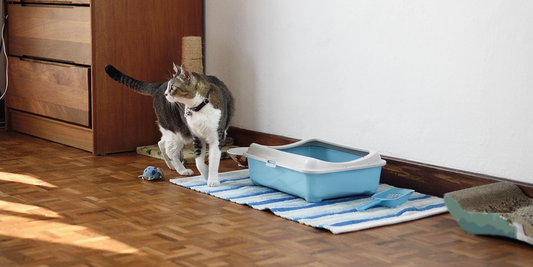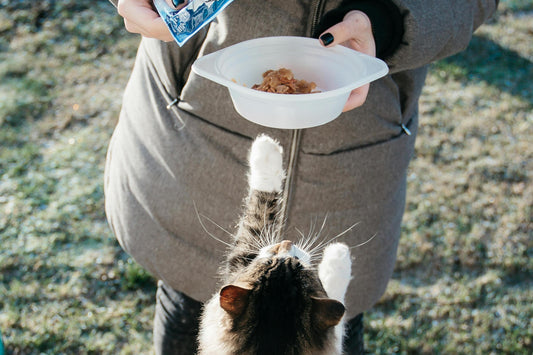Introduction
Understanding our feline friends' behaviors is essential for providing them with optimal care and ensuring their well-being. One peculiar habit that often leaves cat owners puzzled is why cats incessantly lick their rear ends. In this comprehensive guide, we delve into the reasons behind this behavior, shedding light on the mysteries of why a cat keeps licking its frequent ass.
Why Does a Cat Keep Licking Its Frequent Ass?
Cats are known for their fastidious grooming habits, but why do they focus so much attention on their rear ends?
Cats have scent glands located near their anus, which they use to mark their territory and communicate with other cats. By licking this area, they spread their scent, reaffirming their ownership of their territory and establishing social bonds within their feline community.
Understanding the Instinctual Behavior
To comprehend why cats engage in this behavior, it's crucial to delve into their evolutionary instincts.
In the wild, maintaining personal hygiene is vital for survival. By grooming themselves, cats remove traces of scent that could attract predators, ensuring they remain undetected in their environment. This innate survival instinct drives cats to groom their entire bodies, including their anal region.
Addressing Skin Irritations and Allergies
Sometimes, excessive licking of the anal area may indicate underlying skin irritations or allergies.
Cats can develop allergies to various environmental factors, such as certain foods, cleaning products, or pollen. When they experience discomfort or itchiness, they may resort to licking their bottom excessively in an attempt to alleviate the irritation.
Preventing Parasitic Infestations
Parasites, such as fleas and intestinal worms, can cause significant discomfort for cats. Licking the anal area excessively may signal an infestation that requires prompt treatment.
Regular preventative measures, such as flea treatments and deworming medications prescribed by a veterinarian, are essential for keeping parasites at bay and ensuring your cat's well-being.
Managing Anal Gland Issues
Anal glands play a crucial role in a cat's digestive system, secreting a smelly substance that helps mark territory and communicate with other cats. However, these glands can sometimes become impacted or infected, leading to discomfort and a strong odor.
Cats may lick their rear ends excessively when experiencing anal gland issues, indicating the need for veterinary intervention. A veterinarian can express the anal glands manually to relieve discomfort and prevent further complications.
Addressing Behavioral Concerns
In some cases, excessive licking of the anal area may stem from behavioral issues rather than physical discomfort.
Stress, anxiety, or boredom can trigger compulsive behaviors in cats, such as excessive grooming. Identifying and addressing the underlying cause of stress is essential for modifying this behavior and ensuring your cat's mental well-being.
Promoting Good Hygiene Practices
While occasional grooming is natural for cats, excessive licking of the anal area may lead to skin irritation or even injury.
Encourage good hygiene practices by providing your cat with regular grooming sessions and maintaining a clean litter box. Additionally, ensure your cat's diet is nutritionally balanced to support healthy skin and coat.
FAQs
Why do cats groom each other's bottoms? Cats engage in mutual grooming as a form of social bonding and establishing hierarchy within their group. By grooming each other, they reinforce their social bonds and maintain a harmonious relationship within the feline community.
Is it normal for a cat to lick its bottom after using the litter box? Yes, it's normal for cats to groom themselves after using the litter box. This behavior helps them maintain personal hygiene and remove any lingering scent marks.
When should I be concerned about my cat's excessive licking? If you notice your cat licking its bottom excessively or exhibiting signs of discomfort, such as redness or swelling around the anal area, it's essential to consult a veterinarian. Excessive licking could indicate underlying health issues that require prompt attention.
Can diet affect my cat's grooming habits? Yes, diet plays a significant role in maintaining your cat's skin and coat health. Providing a balanced diet rich in essential nutrients, such as omega-3 fatty acids, can help promote healthy skin and reduce the likelihood of excessive grooming behaviors.
How can I prevent my cat from developing anal gland issues? Regular veterinary check-ups and maintaining good hygiene practices are crucial for preventing anal gland problems. Your veterinarian can advise you on proper grooming techniques and recommend dietary adjustments or supplements to support your cat's anal gland health.
What should I do if my cat continues to lick its bottom excessively? If your cat persists in licking its bottom excessively despite your efforts to address the underlying cause, consult your veterinarian for further evaluation and guidance. Your vet may recommend additional diagnostic tests or behavioral interventions to help manage the behavior effectively.
Conclusion
Understanding why a cat keeps licking its frequent ass requires a multifaceted approach, considering both physical and behavioral factors. By addressing potential underlying issues and promoting good hygiene practices, you can ensure your cat remains healthy, happy, and comfortable. Remember, attentive care and regular veterinary check-ups are essential for maintaining your feline companion's well-being.








